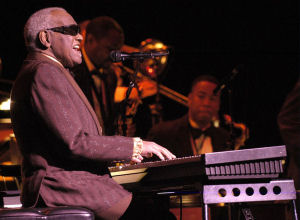6 February 2014
Temporary blindness may fix hearing problems
by Will Parker
 Researchers have long known that young brains are malleable enough to re-wire the circuits that process sensory information. For example, a young child who is blind develops a much keener sense of hearing. Now, researchers have overturned conventional wisdom, showing that adult brains can also be re-wired.
Researchers have long known that young brains are malleable enough to re-wire the circuits that process sensory information. For example, a young child who is blind develops a much keener sense of hearing. Now, researchers have overturned conventional wisdom, showing that adult brains can also be re-wired.
The findings, published in the journal Neuron, may lead to novel treatments for people with hearing loss or tinnitus, according to the University of Maryland's Patrick Kanold, who led the study.
"We can perhaps use this to benefit our efforts to recover a lost sense," added co-researcher Hey-Kyoung Lee, from Johns Hopkins. "By temporarily preventing vision, we may be able to engage the adult brain to change the circuit to better process sound."
Kanold explained that there is an early "critical period" for hearing, similar to the better-known critical period for vision. The auditory system in the brain of a very young child quickly learns its way around its sound environment, becoming most sensitive to the sounds it encounters most often. But once that critical period is past, the auditory system doesn't respond to changes in the individual's soundscape.
"This is why we can't hear certain tones in Chinese if we didn't learn Chinese as children," Kanold explained. "This is also why children get screened for hearing deficits and visual deficits early. You cannot fix it after the critical period."
Kanold, an expert on how the brain processes sound, and Lee, an expert on the same processes in vision, thought the adult brain might be flexible if it were forced to work across the senses rather than within one sense. They used a simple, reversible technique to simulate blindness: they placed adult mice with normal vision and hearing in complete darkness for six to eight days. After the adult mice were returned to a normal light-dark cycle, their vision was unchanged. But their hearing was much better than before.
Specifically, the researchers tested neurons in a middle layer of the auditory cortex that receives signals from the thalamus, a part of the midbrain that acts as a switchboard for sensory information. The neurons in this layer of the auditory cortex, called the thalamocortical recipient layer, were generally not thought to be malleable in adults.
But the researchers found that for the mice that experienced simulated blindness these neurons did, in fact, change. In the mice placed in darkness, the tested neurons fired faster and more powerfully when the tones were played, were more sensitive to quiet sounds, and could discriminate sounds better. Importantly, these mice also developed more synapses (neural connections) between the thalamus and the auditory cortex.
"The fact that the changes occurred in the cortex, an advanced sensory processing center structured about the same way in most mammals, suggests that flexibility across the senses is a fundamental trait of mammals' brains," Kanold said.
The mice that experienced simulated blindness eventually reverted to normal hearing after a few weeks in a normal light-dark cycle, but Kanold and Lee plan to look for ways to make the sensory improvements permanent, and to look beyond individual neurons to study broader changes in the way the brain processes sounds.
Related:
Discuss this article in our forum
Brain waves reveal mind's internal voice
Fungi make modern violin sound like a Stradivarius
Acoustic diode allows one-way sound transmission
Knife-on-bottle is "nastiest sound," say scientists
Source: University of Maryland
